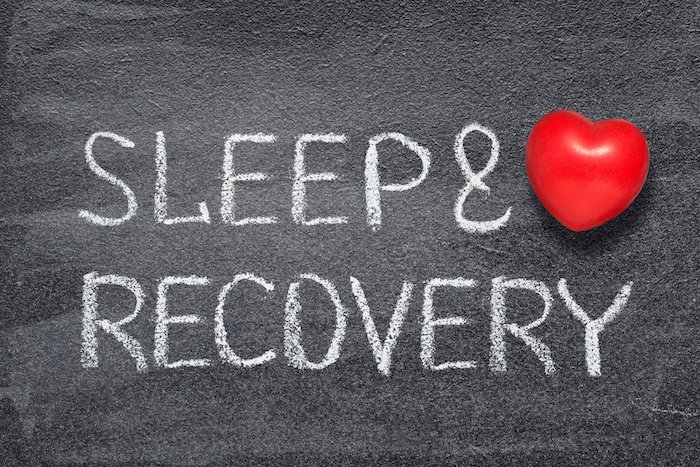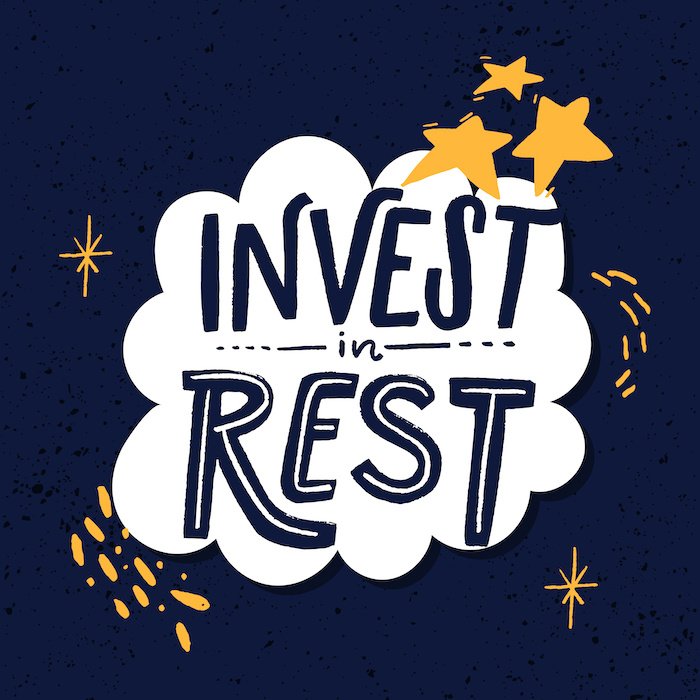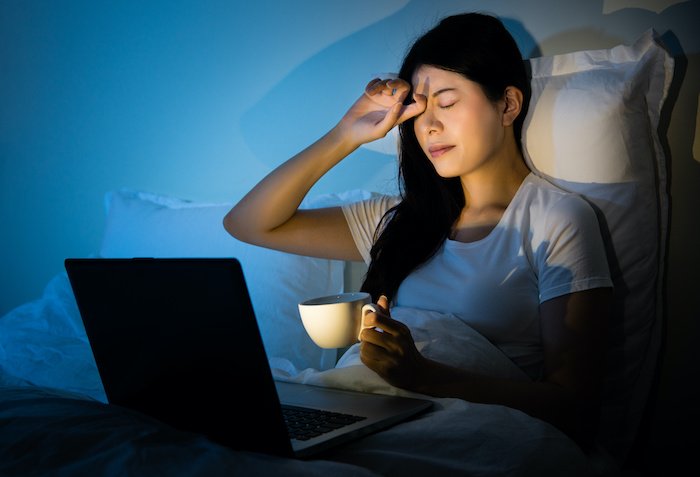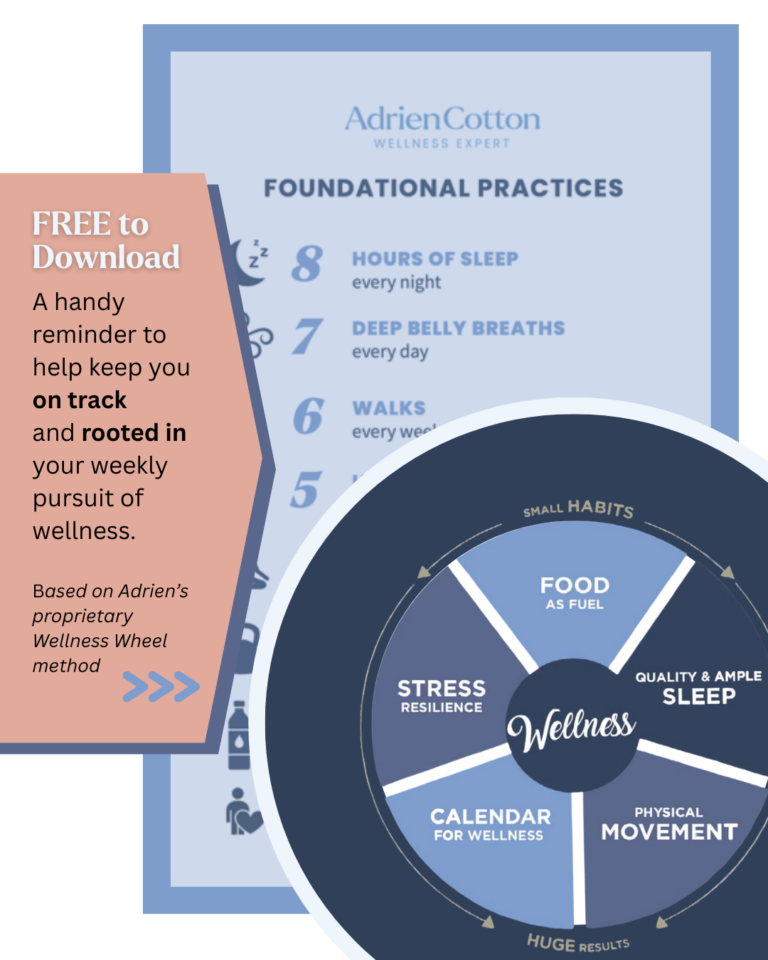In a few weeks, I’m going to release my first ever online course to help women CRUSH their perimenopause and menopause years. I’ve been spending a lot of time surveying, canvassing, and checking in with clients and friends about their experience in this FUN stage and if they can imagine getting a good night’s sleep – every night – for the rest of their lives.
Most of the time, I’m met with lots of laughter and “really, Adrien?” when I promise they can feel better and that perimenopause and menopause don’t need to be a chore. In fact, I contend you can be fitter, stronger, calmer, and, yes, get solid sleep.
What has really helped my story and my explanation is to help all of us see most of us were raised in an era when sleep was simply not valued. In fact, we were either told to believe, or it was inferred, that sleep is a waste of time.
I get it. In the MacGillivray (my maiden name) household, productivity, rising to the top, and success in jobs and grades came first. Sleep could come later. In fact, we never really talked about sleep. We talked about how to get ahead, how to achieve, yet sleep wasn’t a part of the conversations.
To give my amazing parents credit and a break, they were both grandchildren of immigrants who came to America with a few dollars to their names. One from Ireland, one from Scotland, and two from Mexico.
Hard work was the name of the game in our house.
And if you look around at the four MacGillivray children, you will see success, for sure, in societal standards. So, it worked.
It took me years to discover the importance of sleep for my workday, my parenting, and my overall health. I was in my 40s. It took me this long to figure out that the harder I worked didn’t matter. Now, I focus less on the “work hard” mentality and more on the “work smart” method, and it has benefited me and my stress greatly.

Whether you are in your 30s, 40s, 50s, 60s, 70s, or 80s, ask yourself, do you value sleep as much as you do your food and your exercise? Is it on your calendar as a top priority for the day?
Do you really think it will help your transition to – or your continuation through – perimenopause and Menopause? I will share in just a few weeks the many ways it can and will. I promise!
The biggest impediment I’ve found in my twenty years coaching people to get well – and fit – is, by far, mindset. A mindset is a set of beliefs we carry with us through our lives. A mindset can hold us back from trying new things, or it can help take us on new pathways. Mindset is everything.
So, if your mindset is that sleep is a waste of time and if you can dig deep to get to…
“Wow, maybe I can start to take my sleep more seriously,” or “I know I wake up a lot at night. Maybe there are things I can do to fix that?” Or even better, “I am pretty sure I never get more than five continuous hours of sleep every night. I bet I’d have fewer afternoon cravings if I didn’t.”
Read on!

The first misconception is that sleep is a waste of time. We may even be naïve enough to think that nothing is really going on when we sleep. How can there be if I don’t know about it?
Well, a lot is happening while we sleep. It is the first time our brain goes inward to repair, heal and prepare us for the next day. During sleep, our bodies perform maintenance on our most vital functions. We reset the immune system. We restore hormonal balance. We clear away waste and neurotoxins. And—we even consolidate memories.
The second misconception about sleep that may help bring you closer to taking the step to putting it as high on your list as diet and exercise is that you don’t think you need 7+ hours of sleep. You have for years done just fine (thank you) on fewer hours.
Well, all of the things our brain does while we sleep – its system – are key to our overall health and wellness. It is a well-greased machine of steps that are helping with thousands of functions of the body. The brain, in fact, is just as busy when we sleep as it is when we are awake.
What?
Yes, it’s true.
Sleep consists of five stages that make up a cycle. Each stage has a unique function.
When you wake in the middle of the night, one or more of the sleep stages are interrupted, and the important work of the sleeping brain is interrupted too. This deprives our brain from engaging in the vital processes I talked about above.

The third misconception about sleep is that it has nothing to do with our weight. Yet I’d argue that sleep has EVERYTHING to do with our weight!
Here are a few reasons why:
- Lack of sleep triggers a hormone that increases our craving for “quick fuel,” like starchy carbohydrates and junk food, by up to 20%.
- Lack of sleep reduces our “fullness” hormone, which leads us to overeat.
- Lack of sleep slows our metabolism. The body burns calories and energy much slower when we are sleep deprived. Additionally, we have less motivation to exercise, which also impacts our metabolism.
- Poor sleep stops fat loss. In one study, people who ate the same number of calories yet got more sleep burned more fat than those who got less than 5.5 hours.



